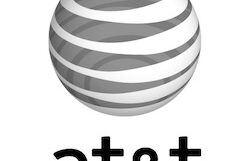ALERT! – Costco Free Grocery Scam – ALERT!
Holiday season is full of scams and here comes another. No Costco is not offering free grocery boxes in exchange for an online survey.
It all started a few days ago when a Facebook page supposedly belonging to Costco offered a free grocery box to anyone who shared and commented on their post. The message was not written by Costco’s CEO Craig Jelinek. But here is common scam clue; Jelinek’s name was misspelled “Jelinekand” in this scam Facebook post. Typos by scam artist are fairly common.
The post said “My name is Craig Jelinekand I’m the CEO of Costco Inc. To celebrate our 35th Birthday every single person who shares and comments in the next 24hrs will get one of these Christmas Food Box delivered straight to their door on Monday 30th November. Each Food box contains groceries worth of $250 and a $35 Costco voucher. Make sure you validate your entry. Limit 1 Food box per person.”
Here is another clue. The message never appeared on Costco’s official page. This scam was shared by an imposter Facebook page. The scammers also posted an identical version of this scam in November targeting Aldi customers.
If you were alert you would have noticed that the “free Costco grocery box” scam did not originate on Costco’s Facebook page. Scammers are very clever creatures. The scam message was actually shared an a webpage labeled “Costco US” whereas Costco’s real page is just “Costco.com” So make sure you check that web address when you see these incredible offers.
As always you can detect a scam by asking yourself “Is it too good to be true?” But if you still can’t decide here are a few tips from the Better Business Bureau;
- Don’t believe what you see. Websites are easy to replicate. It’s easy to steal the colors, logos, and header of any other established organization. Scammers can also make links look like they lead to legitimate websites and emails appear to come from a different sender.
- Legitimate businesses do not ask for credit card numbers or banking information for coupons or giveaways. If they do ask for personal information, like an address or email, be sure there’s a link to their privacy policy.
- When in doubt, do a quick web search. If the giveaway is a scam, this is likely to reveal an alert or bring you to the organization’s real website, where they may have posted further information.
- Watch out for a reward that’s too good to be true. Businesses typically give out small discounts to entice customers. If the offer seems too good to be true (a $100 voucher or 50% discount) it may be a scam.
- Look for a mismatched subject line and email body. Many of these scams have an email subject line promising one thing, but the content of the email is something completely different.
Now you know.






